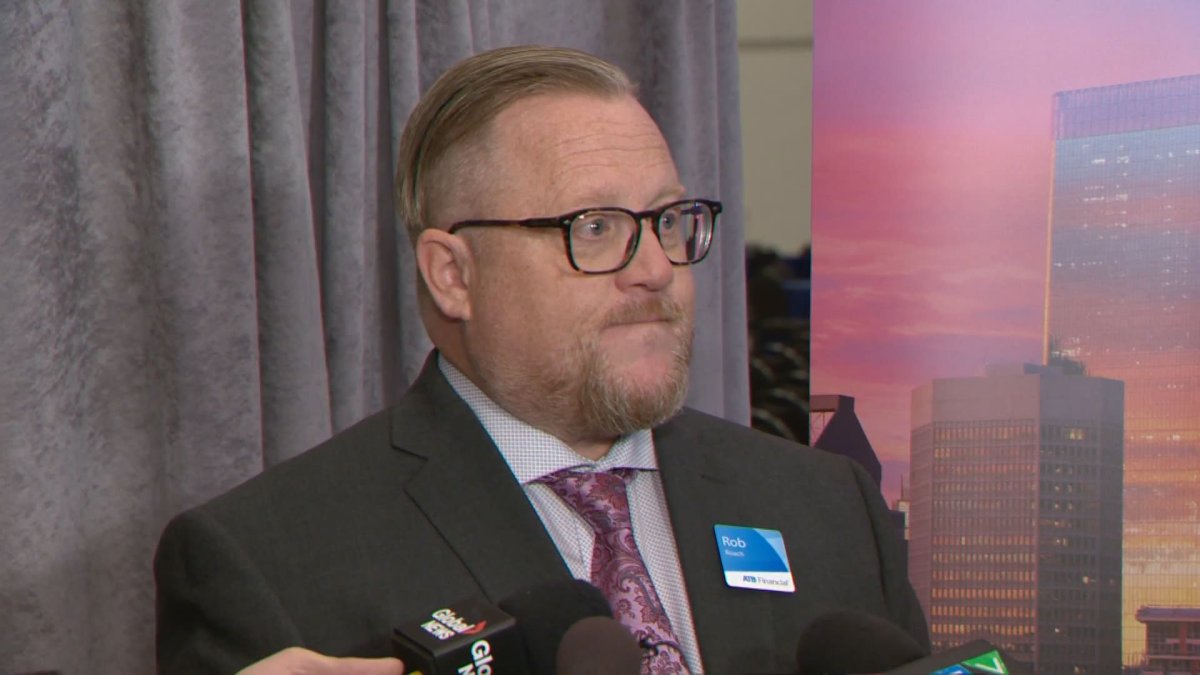Alberta is expected to ride out “rough economic waters” on the horizon, according to Calgary Economic Development’s 2023 economic.

And according to Rob Roach, ATB Financial’s deputy chief economist, “there’s a lot of great things going on in Calgary and in Alberta economically.”
ATB Financial forecasts Alberta’s 2022 GDP growth will be 5.0 per cent, and dip to approximately 3.0 per cent next year.
Commodity prices are buoying much of this province’s positive growth next year.
Those forecasts stand in contrast to Manulife Investment Management’s forecast of negative GDP growth nationwide next year.
Roach expects Alberta and Saskatchewan to “stand out” among other provinces in 2023 in light of an expected recession.
“We’re still going to experience those rough waters here in Alberta, but because we’re doing a little bit better — commodity prices and other positive things — we’ll be able to weather that storm a little bit better than other places,” Roach said.
Energy, commodities and agriculture will be the “main drivers” of Alberta’s economic growth, he said.

And according to research commissioned by CED, opinions of Calgary are improving in “key markets” in North America and Europe this month: 73 per cent of workers have a “positive impression,” 68 per cent saw the city as diverse and inclusive, 74 per cent saw Calgary as a hub for tech and innovation, and nearly two-thirds thought Calgary had opportunities beyond just energy.
The survey done by Stone Olafson was based on interviews with 1,591 people in the Canadian cities of Montreal, Toronto, Vancouver and the Kitchener/Waterloo area, the United Kingdom capital of London, and 15 U.S. tech markets.
CED president and CEO Brad Parry pointed to progress in diversifying the economy and investment in the tech sector.
“We’ve seen the most venture capital dollars coming into our city (this year). If you look at Q2, we actually outpaced Vancouver in the total volume of volumes coming into our city and we don’t see it slowing down,” Parry said.

Get breaking National news
Calgary Mayor Jyoti Gondek said the city is well-positioned to weather economic challenges.
“We’ve seen a diversification in our economy over the years and it’s given us optimism for the future even in these uncertain times,” Gondek said in a statement. “From cleantech to aviation, life sciences to film and TV, there’s exciting growth across a wide variety of sectors driving confidence in our city’s economy.”
But the ATB economist acknowledged there are some headwinds to be addressed.
“Aging of the population, the tech transition, the energy transition, labor shortages and the biggest one, I think, is the eroding trust between people – we really need that trust to make our economy work long term – those are five that stand out to me.”
Alex Grassino, Manulife’s head of North American macro strategy, forecasts a recession to hit Canada into the first two quarters of 2023, driven by inflation and the central bank’s monetary policy response.
He expects Canada’s economy to contract by 0.6 per cent in 2023.
“Without lower inflation, central banks are resigned to hiking into an environment where they worsen the overall outlook for people and for businesses alike,” Grassino said. “Until inflation slows down, the central bank will have to keep rising, and that will create more pain for consumers and for businesses alike.”
Grassino said the latest headline inflation numbers – 6.9 per cent – is “stubbornly strong,” but said there is “light at the end of the tunnel” coming when the Bank of Canada is expected to stop hiking rates around mid-2023.
“An important part of that, really, is that when we get to the end of the hiking cycle, people can start to plan. It’s a lot harder to figure out what you want to do if you don’t know how much you’re going to have to pay to do it. And that goes for both inflation and the interest you have to pay on bigger projects,” Grassino said.
The Calgary Real Estate Board’s chief economist said recent increases in interest rates and inflation will cool off demand.
“But one thing I want to point out is it is still very different than what we went through back in 2015 and -16. And so even though we’re pulling back, we’re expecting the market still to be better than what we went through throughout that period,” Ann-Marie Lurie said.
She said there’s a shift towards more affordable and more available housing categories like apartments or row housing.
Lurie said the recent sellers market appears to be shifting towards more balanced conditions.
“Even though we’re having some pullback now, we’re still relatively tight, especially in those lower price ranges,” she said. “We are starting to see some shifts moving into much more balanced conditions now than we have been for some time, which is a better situation to be in.”
The first in-person economic outlook in three years, the economic outlook of expected growth in the face of a recession and improved diversification are “fantastic” news for Barry.
“For us, it’s something that we’ve seen for a while and we’re just glad to see start to take fruition.”












Comments